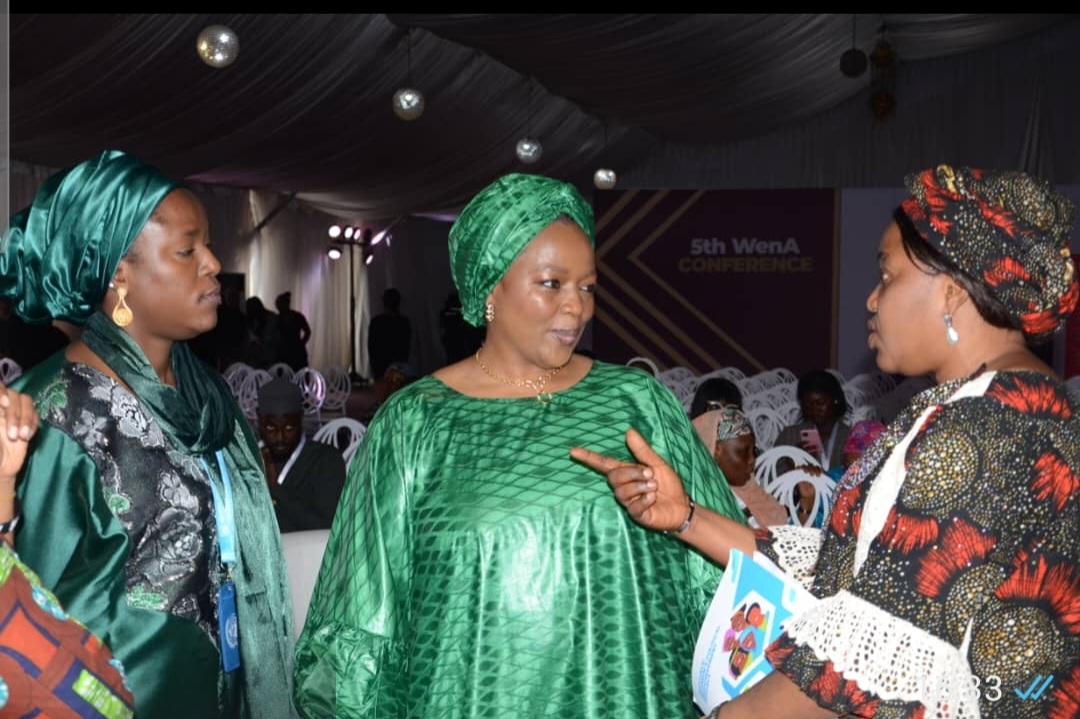• Many women still lack access to information, capital, and markets — Aisha Babangida
• FG pledges reforms to boost women-owned businesses, inclusive growth
Esther Oseyiomon
The Presidency has lauded the invaluable contributions of Nigerian women and Small and Medium Enterprises (SMEs) to national development, describing them as the lifeblood of the country’s economy.
Speaking at the 5th Women Enterprise Alliance (WenA) Conference held in Abuja, the Senior Special Assistant to the President on Entrepreneurship Development and Innovation in the Digital Economy, Ms. Chayla Shagaya, reaffirmed the Federal Government’s commitment to strengthening the ecosystem for women entrepreneurs through targeted reforms that reduce the cost of doing business, expand access to finance, and promote gender-responsive policies for inclusive economic growth.
Themed “Policy Reforms and Resilience Strategies for Small and Medium Enterprises in a New Economy,” the conference brought together key policymakers, development partners, financiers, and entrepreneurs from across Nigeria.
Shagaya noted that under President Bola Ahmed Tinubu’s Renewed Hope Agenda, women-led SMEs remain “the quiet economists of every household” and a central pillar of Nigeria’s economic resilience.
“Across Nigeria, women entrepreneurs are doing the hard work of keeping our economy alive — innovating, employing, and solving local problems with global relevance. About 70 per cent of public submissions on SME policy reforms came from women,” she stated.
Shagaya highlighted ongoing government reforms such as the Presidential Power Initiative, digital financing pathways, and tax harmonisation frameworks aimed at lowering operational costs for SMEs, most of which are women-led.
She further revealed partnerships between the Bank of Industry and other financial institutions aimed at improving access to affordable credit for female entrepreneurs, who often face challenges related to collateral.
“You no longer need to bring your grandmother’s land title to secure a loan,” she added humorously.
According to her, a digital feedback call recently hosted by her office received over 100,000 submissions, with more than 70 per cent coming from women business owners.
“This is no longer a time for policy on paper; it is time for policy that reaches people where they are — especially the women at the heart of our enterprise sector,” she affirmed.
In her address, Her Excellency Aisha Babangida, described the conference as a platform to accelerate the translation of national and global policy commitments into measurable outcomes for women-led enterprises.
She underscored the need for continuous advocacy, lamenting that many women still lack access to information, capital, and markets, and are often constrained by rigid and complex regulatory frameworks.
“When I founded WenA, I thought passion was enough. But it wasn’t. The paperwork, the tax codes, the licensing rules — these were heavy even for those of us with networks. Imagine what it’s like for a woman starting a micro-business in a rural town with little support,” she said.
The Founder of WenA, commended UN Women Nigeria for its Affirmative Action Procurement Reform Initiative in Kaduna State, which has introduced female representation on procurement boards, waived registration fees, and reserved a portion of public contracts for women-led enterprises.
“Inclusive procurement is not a concession to women; it is an economic strategy,” she emphasised.
She announced that WenA will soon launch a National Certification Programme to help women entrepreneurs qualify for public contracts through enhanced documentation, compliance, and capacity building.
“Our goal is not to highlight problems but to unlock solutions. Today, we move from policy talk to practical tools — from exclusion to empowerment,” Babangida declared.
Photospeak
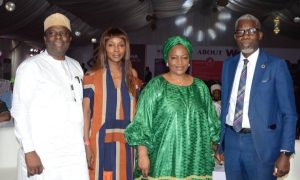
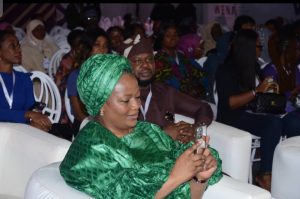
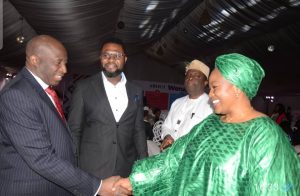 j
j
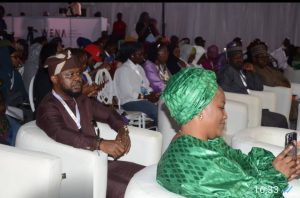
During the pre-conference policy workshop, Ms Aisha Bendo-Alkali of UN Women Nigeria highlighted the urgent need to address unpaid care work, a significant barrier limiting women’s participation in the economy.
Supported by the African Development Bank (AfDB) and Women Entrepreneurs Finance Initiative (We-Fi), the initiative promotes care-responsive policies and the integration of women’s economic empowerment into national planning.
“Reducing the burden of unpaid care is not just a gender equality goal — it is essential to unlocking national productivity,” she said, calling for the scale-up of inclusive procurement policies nationwide.
In his goodwill address, the Executive Chairman of the Federal Inland Revenue Service (FIRS), Dr Zacch Adedeji, unveiled key fiscal reforms designed to ease tax burdens on small businesses, especially those run by women.
He announced that, effective January 2026, businesses earning not more than ₦100 million in annual turnover will be exempted from corporate income tax — a measure he described as “a deliberate strategy to incentivise growth, not penalise enterprise.”
“Taxation should support the formalisation and scaling of small businesses — not stifle them,” he stated.
Adedeji who was represented by the Head Fiscal and Tax Reforms Implementation FIRS, Mr. Olufemi Olarinde, also revealed the introduction of a Unified Tax Identification Number (UTIN), integrated across the Corporate Affairs Commission (CAC), FIRS, and other agencies to simplify compliance for SMEs.
He added that the FIRS is transitioning to fully digital tax filing and correspondence systems, eliminating paper-based bureaucracy.
The 5th WenA Conference attracted participation from senior government officials, development agencies, private sector leaders, and entrepreneurs — all reaffirming the central role of women in driving inclusive growth, job creation, and national resilience.
In her closing remarks, Aisha Babangida emphasised that real reform must be measured by tangible impact, not policy statements.
“A real reform is when a woman in Kaduna, Aba, or Makurdi feels the change in her daily hustle — when she can register her business in minutes, access capital without fear, and supply to the government without discrimination,” she said.
The event, supported by FIRS, FCMB, and UN Women, concluded with a collective pledge to advance a gender-inclusive economic framework that leaves no woman behind.
“Empowering women entrepreneurs is not charity,” Ms Shagaya asserted. “It is a national strategy — and the path to building a resilient and inclusive Nigerian economy.”

